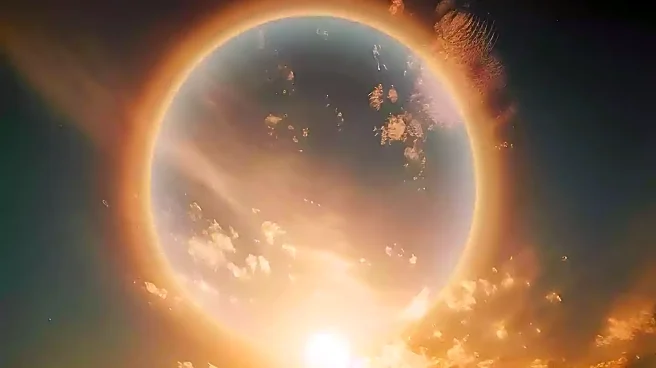What is the story about?
What's Happening?
A recent prediction of the Rapture, which was supposed to occur on September 23, has left many Evangelicals disappointed as the event did not transpire. The prediction gained traction on TikTok, where users prepared for the event, believing that Jesus would return to save devoted followers. The concept of the Rapture, although not explicitly mentioned in the Bible, has been popularized by figures like John Nelson Darby. The prediction originated from a sermon by South African pastor Joshua Mhlakela, who claimed to have received the date in a vision. Despite the anticipation, the day passed without incident, leaving many to reflect on their beliefs.
Why It's Important?
The failed prediction highlights the influence of social media in spreading religious beliefs and the impact such predictions can have on individuals and communities. For many, the anticipation of the Rapture brought anxiety and fear, particularly among those who grew up in environments where such beliefs were emphasized. The event underscores the need for critical examination of religious teachings and the psychological effects they can have. It also reflects broader societal trends where online platforms can amplify niche beliefs, affecting public perception and behavior.
What's Next?
As the predicted date has passed, those who anticipated the Rapture may continue to deconstruct their faith and reassess their beliefs. The event may lead to increased skepticism among followers and prompt discussions within religious communities about the validity of such predictions. Social media platforms may see continued discussions and content related to the Rapture, as users share their experiences and thoughts on the matter.














